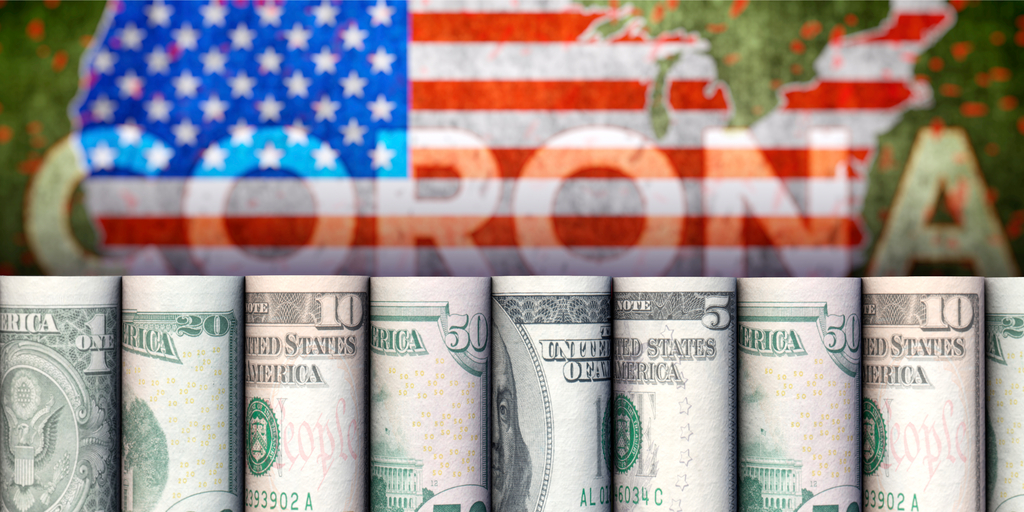The Coronavirus Stimulus Bill—What is the Impact on Employers and Businesses?
The Coronavirus Stimulus Bill—What is the Impact on Employers and Businesses?
After protracted, tense negotiations, the U.S. Senate unanimously passed a $2 trillion stimulus package aimed at the economic fallout from the coronavirus. The bill will provide relief for employers and businesses as well as for individuals. The House of Representatives is expected to vote to approve the measure later this week, which would then go to President Trump for his signature. Here are key provisions of the deal, and the anticipated impact on employers, businesses, and individuals.
Impact on Employers and Individuals
Of significant interest to employers, the stimulus bill will make $350 billion available for small businesses in zero-interest small business loans, which may be converted into grants provided those businesses comply with certain conditions including continuing paying their workers while they stay home. This is estimated to affect more than 30 million businesses with 500 employees or less, aimed at keeping businesses afloat and their workers employed. A qualifying business will be eligible to receive up to $10 million each in forgivable small business loans. Funds could be used for payroll support, paid sick leave, mortgage payments, rent payments and servicing existing debt.
The bill includes an Education Stabilization Fund, which designates $13.5 billion for K-12 schools, $14.3 billion for higher education, and $3 billion for governors’ discretionary use to assist schools impacted by the coronavirus. Schools receiving funds “shall to the greatest extent practicable, continue to pay [their] employees and contractors during the period of any disruptions or closures related to coronavirus.” The bill also allocates $150 billion in aid for states, local, and tribal governments.
Additionally, the bill provides for $250 billion in expanded unemployment insurance benefits. The aim is to ensure that laid-off workers receive their full pay as completely as possible. To do this, the bill makes unemployment benefits available for 39 weeks, up from the usual 26 weeks in most states, and increases the maximum unemployment benefit that a state gives to a person by $600 per week for the first four months. Unemployment benefits will be extended to workers who typically do not qualify, such as gig economy workers, furloughed employees, and freelancers.
The bill also provides for direct cash payments to individuals. This includes payments of $1,200 to individuals and $500 for children, phased out for individuals earning more than $75,000. Couples earning up to $150,000 will receive $2,400, with an additional $500 per child. Payments will be phased out for individuals making more than $75,000, with an income cap of $99,000 per individual without children and $198,000 for couples without children. Other benefits aimed at individuals include provisions to protect the credit ratings of persons who defer or skip loan payments due to the crisis, mortgage loan forbearance for federally backed mortgages, and suspension of federal student loan payments through September 30, 2020.
Impact on Businesses
The Coronavirus Aid, Relief, and Economic Security Act,’’ or ‘‘CARES Act,” also provides for $500 billion in lending to corporations, states, and cities. Out of this amount, $29 billion is designated for passenger and cargo airlines, and $17 billion is designated for businesses deemed important for national security, such as Boeing, and may also include defense contractors and their suppliers. The remaining funds will be available to other businesses, cities and states, allocated through the Federal Reserve.
Democrats pushed for several oversight measures to ensure proper use of the $500 billion fund. The bill includes provisions for appointing an inspector general and congressional oversight commission to monitor the fund. The bill also prohibits businesses owned by the Trump family and other top government officials from receiving funds, and includes requirements for immediate disclosure of recipients.
Industries particularly affected by the crisis will receive additional relief. The bill allocates $25 billion to passenger airlines in direct funding for worker salaries and benefits, and $3 billion to continue paying contract workers that provide airline and airport services such as catering, baggage loading, ticketing, and check-in. Airlines receiving this relief must agree not to cut pay, furlough, or lay off employees until September 30, 2020. Companies must also agree to limits on executive compensation, and to not to buy back shares or pay dividends.
The bill will provide substantial relief for hospitals hard hit by the coronavirus crisis. Hospitals and healthcare systems will receive $100 billion in relief. There are additional funds for hospitals to pay for personal and protective equipment, additional healthcare workers and training, testing supplies, and new construction to house patients. In addition, the bill allocates $27 billion to an emergency fund aimed at developing drugs and vaccines against coronavirus.
Businesses also will benefit from an estimated $280 billion in various tax benefits. This includes provisions allowing companies to defer payroll taxes for the rest of the year. In addition, businesses will be able to temporarily claim deductions using current losses against past profits.
RumbergerKirk COVID-19 Task Force will continue to monitor all legislation, and federal laws and agencies, and keep our clients updated to navigate the changing landscape.







